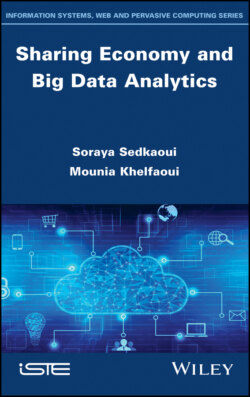Читать книгу Sharing Economy and Big Data Analytics - Soraya Sedkaoui - Страница 42
Box 2.2. Poverty’s two perspectives
ОглавлениеPoverty can be understood through two perspectives: “The first focuses on the resources, including goods and services, that are owned or available to characterize the level of poverty.” It is a monetary analysis of poverty. The second focuses on what people are able to do or be using the resources at their disposal. It is an analysis on “human capabilities” (Lasida et al. 2009).
In light of this definition, one wonders what a population living in poverty can share if it does not have the essentials to meet its most basic needs. Will access to platforms be enough to restore a sense of social reintegration to people that are living in modest circumstances?
Indeed, it is necessary to have an asset base in order to be able to perform any exchanges:
In this perspective, economic capital would be measured more in terms of access to property, than in terms of heritage. This new relationship with goods is therefore supposed to create a tremendous leverage effect for the poorest populations: what could not be bought yesterday because of a lack of resources can be borrowed or rented the next day at reasonable rates. (Pasquier and Daudigeos 2016)
Also, a study by Williams and Windebank (2005) showed that people of modest circumstances express negative feelings of social exclusion in relation to second-hand purchases.
Paradoxically, they are simultaneously driven by “positive feelings of agency power over purchasing decisions, because second-hand purchases sometimes remain preferable to donations, loans or non-purchases” (Benoît-Moreau et al. 2017). In practice, this means that collaborative platforms offer people with opportunities to acquire goods and feel reintegrated into society through the collaborative economy niche.
But ideas that advocate the reliability of the sharing economy to institute equality for all are not shared by everyone. The literature on this issue is divided between those who support the idea that digital platforms contribute to social integration, and those who consider them to be reserved for a wealthy population.
A study in 2016, by Benoît-Moreau, Delacroix and Parguel, on the economic benefits brought by purchase-sale practices on collaborative platforms, which integrated the “psychosocial benefits”5 variant for the first time and was associated with the economic benefits gained, revealed that the economic benefits increase when purchase and sale transactions are practiced on the platforms (they allow them to make gains on their budgets and close the month-end).
In contrast, from a psychological point of view, this activity does not provide any satisfaction for people in financial difficulty. Instead, it reinforces the feeling of social exclusion because it is perceived as a “stigmatizing constraint”. The only psychological satisfaction is that of making a financial gain (Benoît-Moreau 2017).
Without claiming to be utopian, collaborative platforms offer economic opportunities for a section of the population that are in financial difficulty. They give that section of the population a sense of satisfaction by allowing them to perform the act of buying with dignity, instead of begging or getting into debt.
